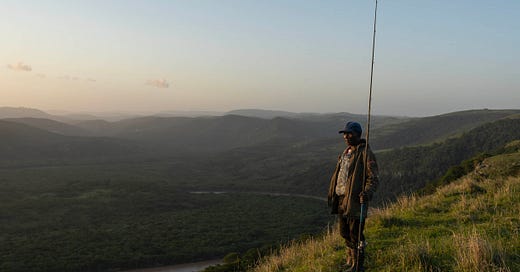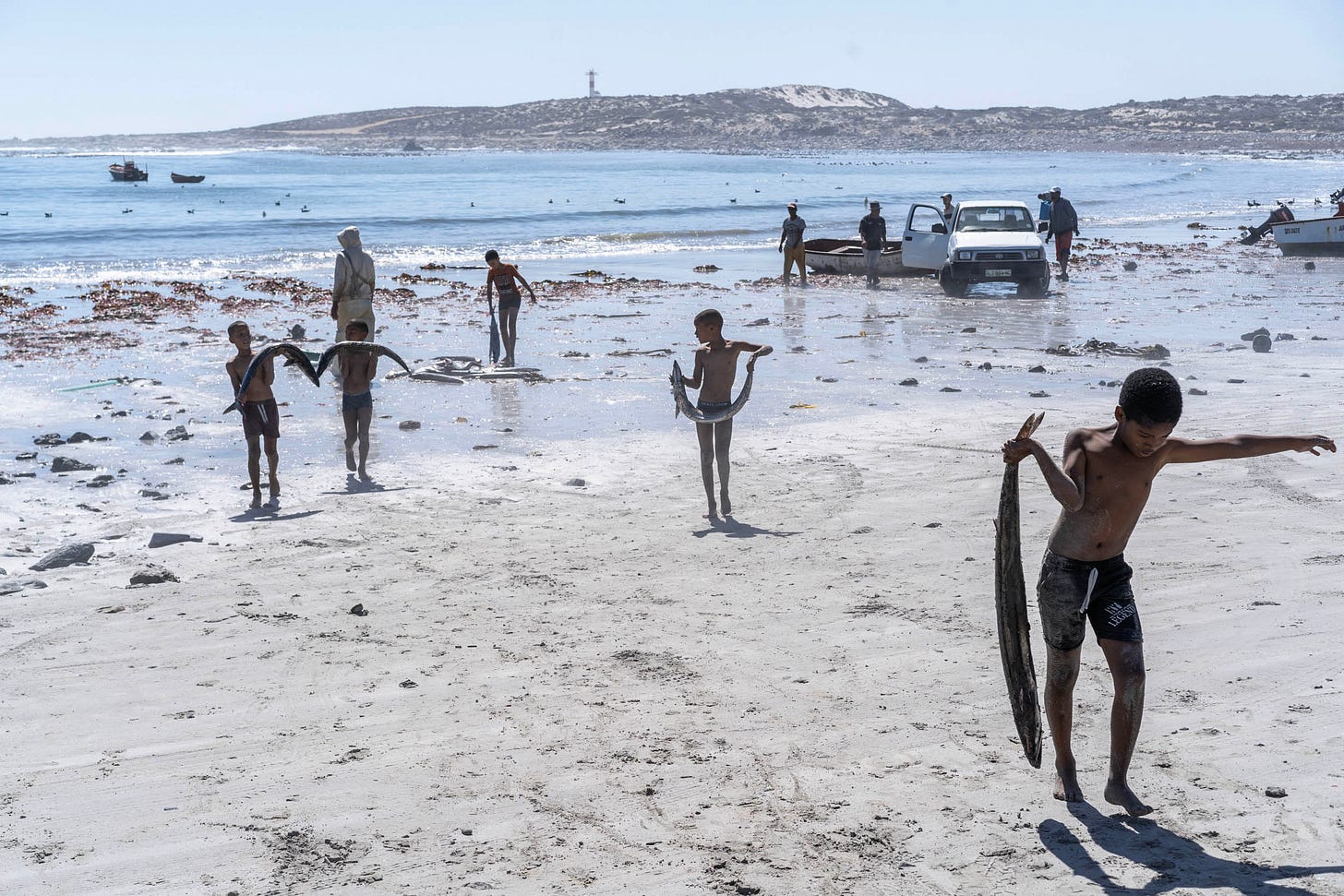Photo Essay: Troubled waters
Oil and gas exploration off South Africa’s coast risks devastating the surrounding environment – and the communities who depend on it.
Words and photos: Barry Christianson
Malibongwe David Gongqose reels in the fishing line he just cast where the beach meets the banks of the Mbashe River at Dwesa-Cwebe. “I don’t know why they don’t bite,” he says. Then, twisting his body, the orange drop-shot lure still visible in the low light as it hangs from the rod, he casts his line again.
Dwesa-Cwebe lies on South Africa’s Eastern Cape coast, where the Mbashe River meets the ocean. The forefathers of many of the people living there now first settled at the river about 300 years ago.
In 2010, Gongqose was arrested for fishing within the Dwesa-Cwebe marine protected area. His arrest ultimately led to the South African Supreme Court of Appeal ruling that Gongqose and the communities of the seven villages making up Dwesa-Cwebe had customary rights to fish and harvest marine resources at Dwesa-Cwebe.
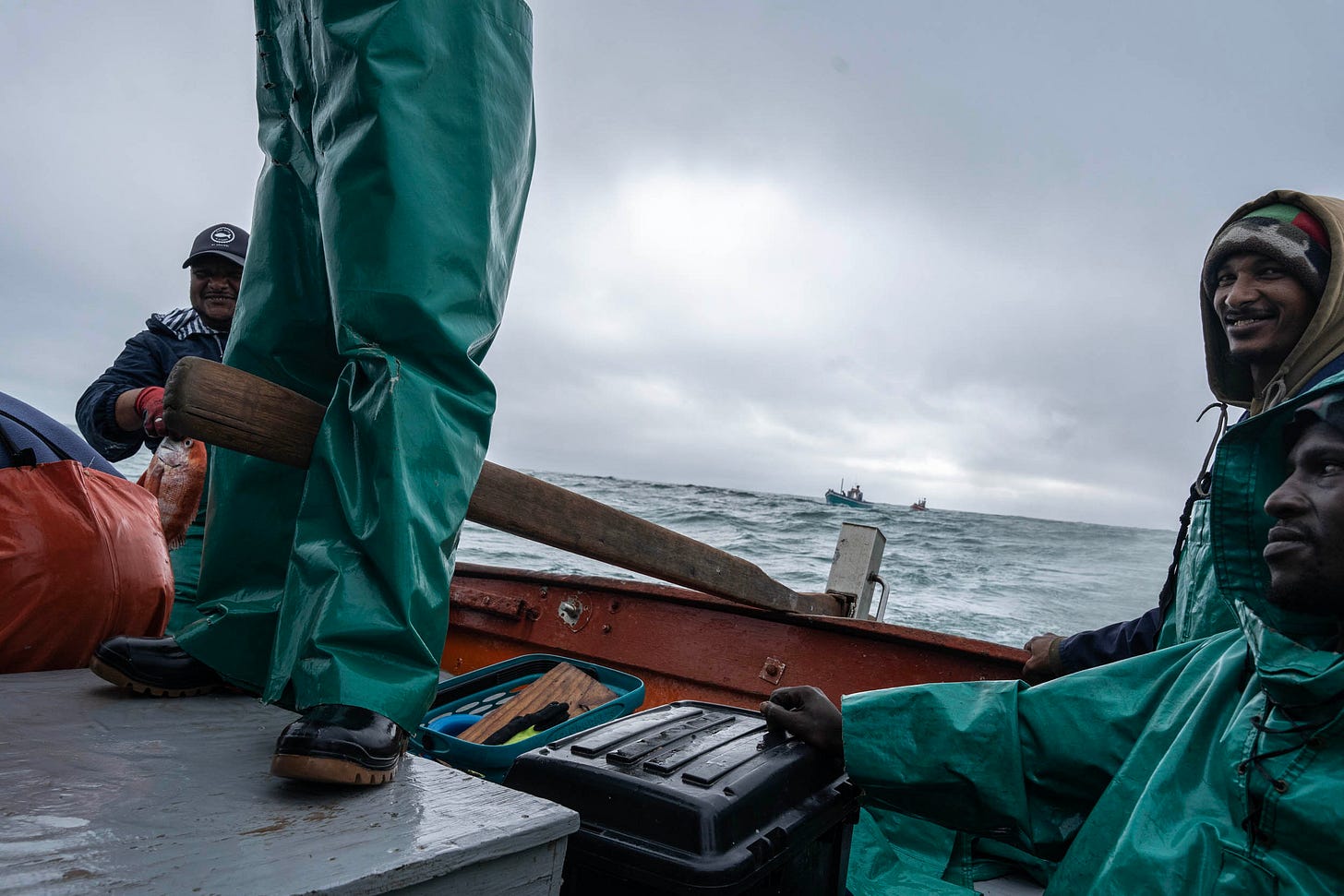
In 2021, Shell announced that it would begin a 3D seismic survey off the Wild Coast in the Eastern Cape in search of oil and gas. The Dwesa-Cwebe Communal Property Association was one of the applicants that approached the courts to put a stop to Shell’s exploration. It worked.
In 2022, the high court in Makhanda ruled in favour of the community – and against both Shell and the government, which remains enamoured of fossil fuels. Shell immediately appealed the ruling, but just this week the Supreme Court upheld the ruling. Mostly. There might be some wiggle room.
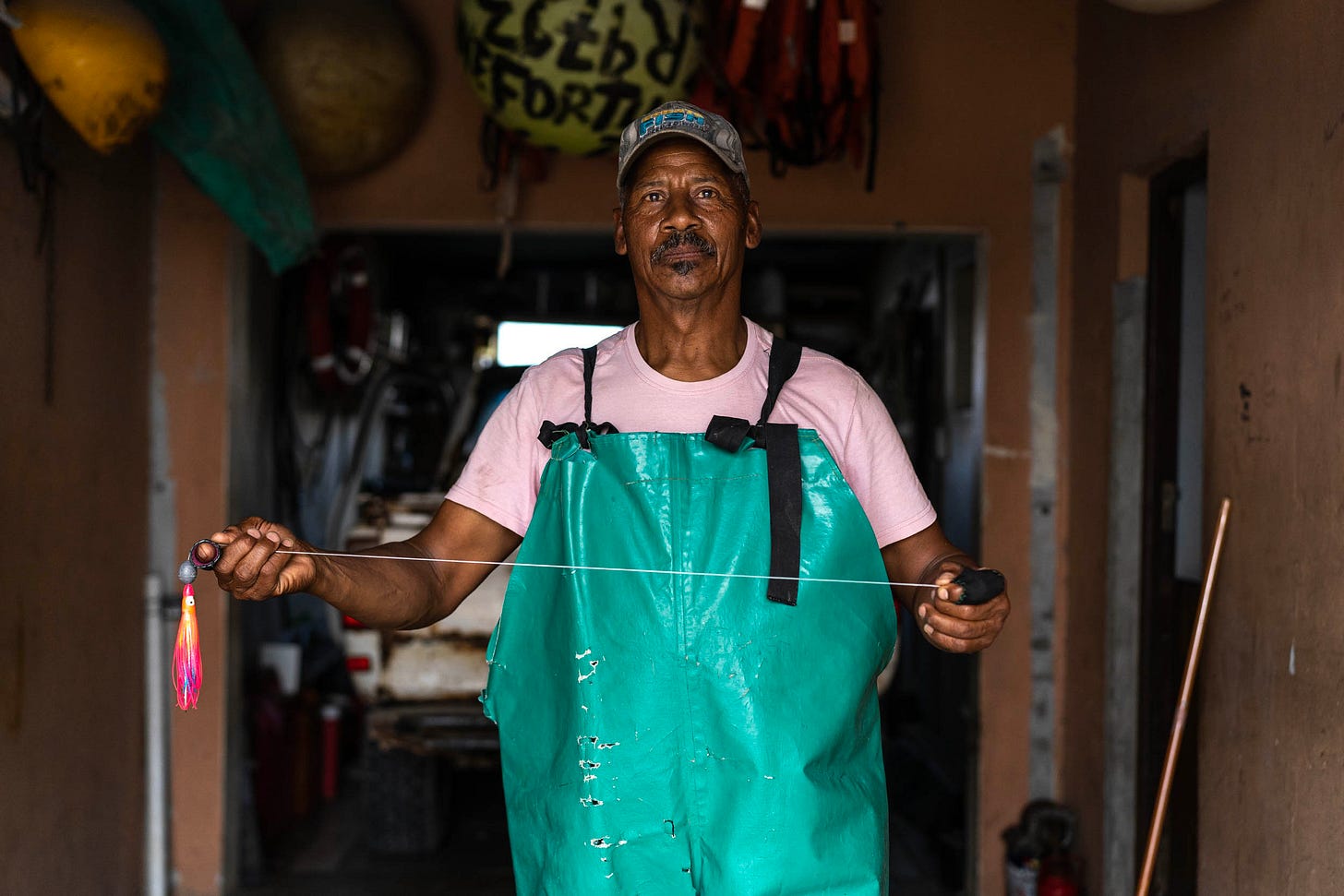
And fossil fuel enthusiasts know how to wiggle. After hours with no bites, Gongqose, who has been fishing for 52 years, decides to call it a night. He straps a head torch to his brow, turns it on, packs his gear into his backpack, picks up his two fishing rods and begins the 7km walk home.
Gonqgose is dead against the idea of Shell prospecting for oil and gas here. He makes all of his income from fishing, and worries that exploration and extraction will ruin the marine ecosystems he depends on. And what about the ancestors? According to the community’s spiritual beliefs, the ocean is the ancestors’ domain. They won’t be happy.
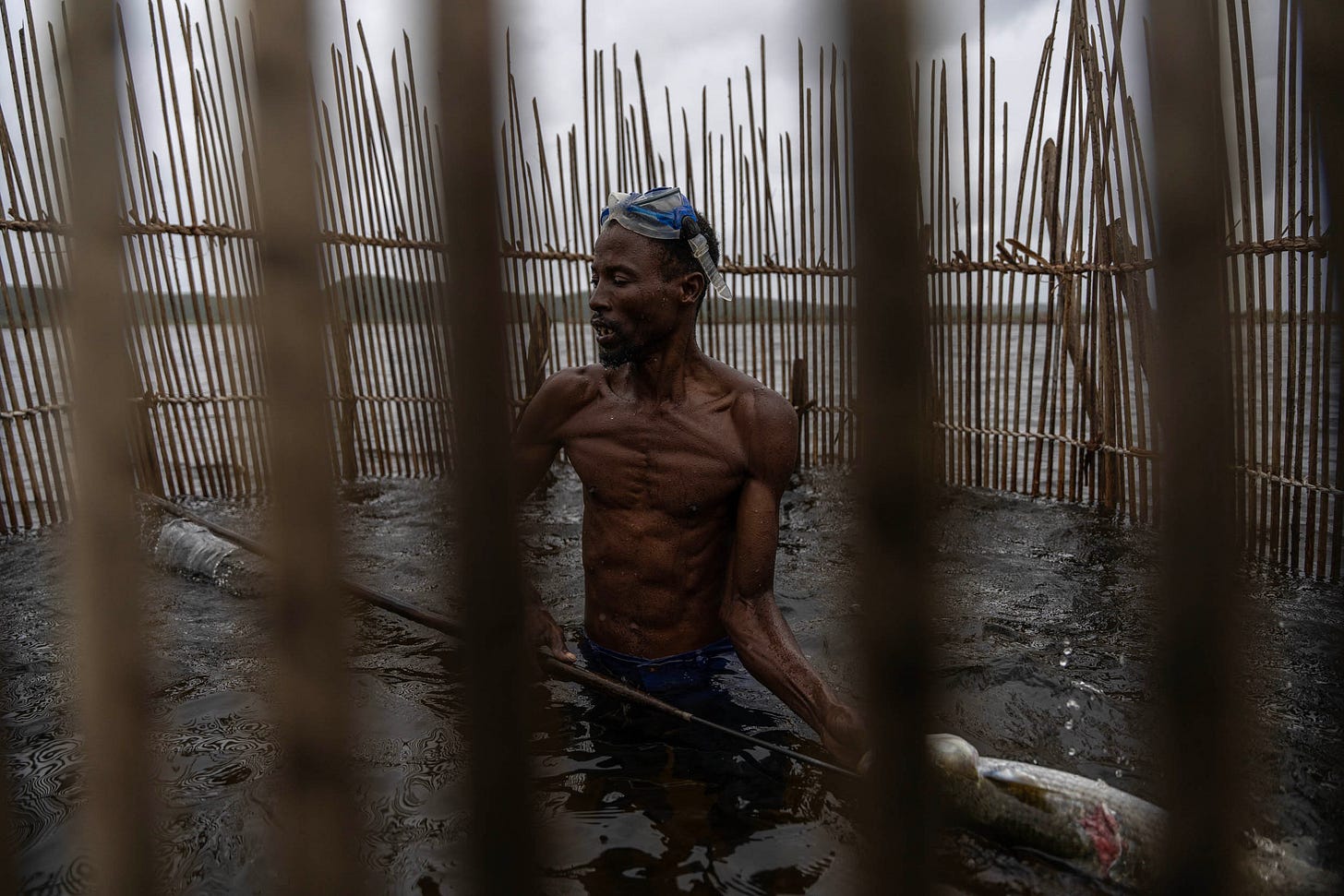
It’s not just Shell. Total Energies, along with its partners, including Qatar Energy, holds exploration rights off South Africa’s South Coast, South West Coast and West Coast – all the way to the Namibian border, and many coastal communities and fishing families are finding their livelihoods at risk from prospecting and extraction activity in their waters.
In contrast to the natural beauty of the Eastern Cape Coast, Port Nolloth on the West Coast is surrounded by unrehabilitated diamond mining concession areas.
Walter Steenkamp, a fourth generation fisher and the chairperson of Aukatowa, a small-scale fishing cooperative in Port Nolloth, is acutely aware that profits for the extractive industry don’t necessarily translate to development. He also worries about the damage to the environment that oil and gas extraction may bring, and how those damages will affect the lives of fisherfolk.
“We have a traditional life. All these years we’ve been working out of the ocean,” says Steenkamp. “Our fathers worked in the ocean and gave those traditions to us. We want to pass our traditions onto our children who are the next generation.”
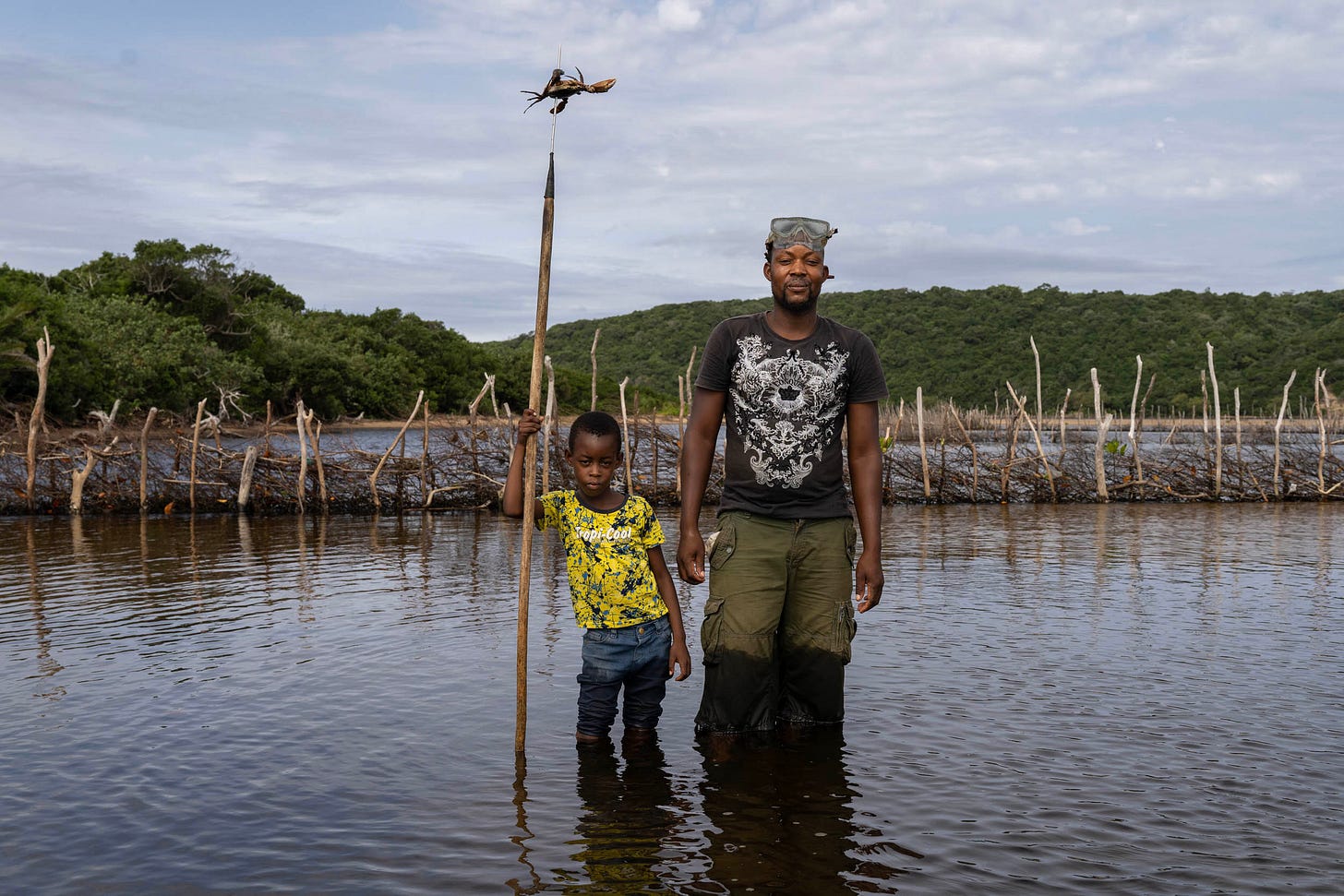
With 98% of South Africa’s ocean terrritory leased for fossil fuel exploration or extraction, coastal communities are vulnerable not only to the impact of spills and leaks associated with oil and gas extraction, but also the effects of climate change, which is accelerated by fossil fuel production.
Gongqose, weary from his fruitless labour, and wary about the future, asks: “What will happen to the fish? What will happen to the fishermen? What will happen to the ancestors?”

